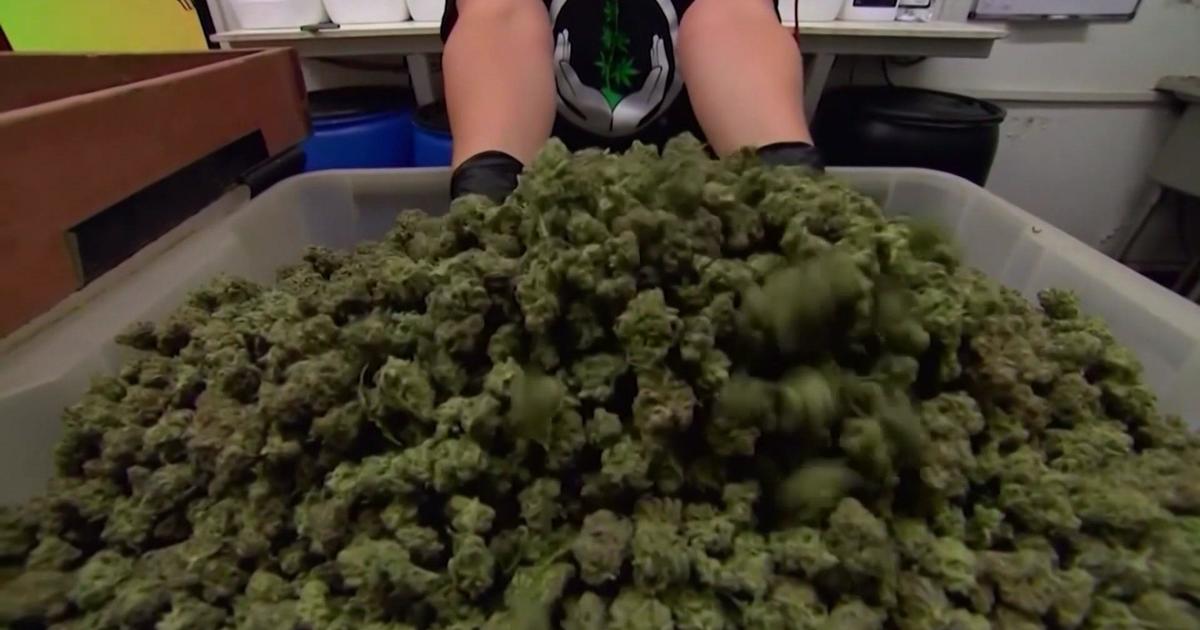Minnesota Marijuana Legalization Bill Clears 12th And Final House Committee, Advancing To The Floor
A bill to legalize marijuana in Minnesota has been approved by its final House committee and will now advance to the floor.
The road to get to this position has been long and winding, with 12 panels hearing and voting on the measure since it was introduced in February.
House Majority Leader Ryan Winkler (D), Speaker Melissa Hortman (D) and other lawmakers filed the proposal, which would allow adults 21 and older to purchase and possess up to 1.5 ounces of cannabis and cultivate up to eight plants, four of which could be mature.
Members of the House Ways & Means Committee approved the legislation in a 16-10 vote on Friday.
Winkler previously said that he expects a floor vote this month, though that has yet to be scheduled. The legislature is slated to adjourn on May 17.
The bill “helps to correct wrongs that have been done for too long in Minnesota to communities who’ve been over-policed who have been targeted for cannabis enforcement to further a prohibition of cannabis that does not work,” the majority leader said in opening remarks.
Winkler said that “legalizing and creating a safe marketplace by taxing cannabis and using the proceeds from those taxes to pay for cannabis regulation to help invest in a cannabis industry” would reflect “the values of Minnesotans and help to address the harm that is caused by cannabis prohibition on our black and brown communities.”
The panel adopted an amendment from Winkler that expands the definition of social equity applicants to include those from communities disproportionately impacted by prohibition and makes changes to how regulators would address rules violations by businesses. It would also revise the amount of funding for various state agencies, including a reduction in appropriations for the Department of Corrections.
A proposal to require that the label on marijuana products include information about the maximum dose that is considered safe within a 24-hour period was also approved.
An additional amendment that would have required marijuana products to be labeled with a warning that cannabis remains illegal under federal law was rejected.
Prior to taking up the legalization bill, members adopted an amendment to separate budget legislation that would provide funding for the implementation of the cannabis program for the first biennium, after which time marijuana tax revenue would more than cover costs
It the measure does clear the full House chamber, it’s still expected to face a significant challenge in the Republican-controlled Senate, where lawmakers have signaled that they’re more interested in revising the state’s existing medical cannabis program than enacting legalization of adult use.
That said, a GOP member of the Taxes Committee, which approved the legalization bill on Wednesday, indicated that he felt an amendment he introduced and that was adopted could bolster Republican support.
That revision from Rep. Pat Garofolo (R) directs remaining cannabis revenue to a tax relief account after implementation costs are covered and substance misuse treatment and prevention programs are funded.
“The adoption of this amendment is a gamechanger,” Garofalo said in a press release. “The Democrat majority accepting this amendment means that if signed into law, this bill will result in lowering taxes Minnesotans are FORCED to pay, financed with the revenue generated from taxes that people are CHOOSING to pay.”
Before the Taxes Committee, the bill passed the Health Finance and Policy Committee, Public Safety and Criminal Justice Reform Finance and Policy Committee, Education Finance Committee, State Government Finance and Elections Committee, Judiciary Finance and Civil Law Committee, Environment and Natural Resources Finance and Policy Committee, Agriculture Finance and Policy Committee, Workforce and Business Development Finance and Policy Committee, Labor, Industry, Veterans and Military Affairs Finance and Policy Committee and Commerce Finance and Policy Committee.
“At the beginning of the year, a House committee had never passed a legalization bill. Now, we’re on the verge of passing a bill off the House floor,” Winkler said in an email to supporters on Friday. “We have the ability to change laws in a way that improves people’s lives, whether it’s expunging cannabis-related records, targeting economic opportunity for those impacted most by the war on drugs, providing relief for veterans suffering from PTSD and serious health conditions, and more.”
The litany of committees the bill has gone through makes it perhaps the most thoroughly vetted legalization measure to move through a state legislature—and it means that a solid portion of the House has already had the chance to review, propose amendments to and vote on the legislation it as it advances to the floor, presumably increasing its chances of passage in the chamber.
The majority leader’s bill as introduced was identical to a proposal he filed last year, with some minor technical changes. Winkler, who led a statewide listening to gather public input ahead of the measure’s introduction, called it the “best legalization bill in the country” at the time. It did not advance in that session, however.
Under the legislation, social equity would be prioritized, in part by ensuring diverse licensing and preventing the market from being monopolized by corporate players. Prior marijuana records would also be automatically expunged.
On-site consumption and cannabis delivery services would be permitted under the bill. And unlike in many legal states, local municipalities would be banned from prohibiting marijuana businesses from operating in their areas.
Retail cannabis sales would be taxed at 10 percent. Part of that revenue would fund a grant program designed to promote economic development and community stability.
The bill calls for the establishment of a seven-person Cannabis Management Board, which would be responsible for regulating the market and issuing cannabis business licenses. It was amended in committee month to add members to that board who have a social justice background.
People living in low-income neighborhoods and military veterans who lost honorable status due to a cannabis-related offense would be considered social equity applicants eligible for priority licensing.
Cannabis retails sales would launch on December 31, 2022.
Gov. Tim Walz (D) is also in favor of ending marijuana prohibition, and in January he called on lawmakers to pursue the reform as a means to boost the economy and promote racial justice. He did not include a request to legalize through his budget proposal, however.
Walz did say in 2019 that he was directing state agencies to prepare to implement reform in anticipation of legalization passing.
Winkler, meanwhile, said in December that if Senate Republicans don’t go along with the policy change legislatively, he said he hopes they will at least let voters decide on cannabis as a 2022 ballot measure.
Heading into the 2020 election, Democrats believed they had a shot of taking control of the Senate, but that didn’t happen. The result appears to be partly due to the fact that candidates from marijuana-focused parties in the state earned a sizable share of votes that may have otherwise gone to Democrats, perhaps inadvertently hurting the chances of reform passing.
In December, the Minnesota House Select Committee On Racial Justice adopted a report that broadly details race-based disparities in criminal enforcement and recommends a series of policy changes, including marijuana decriminalization and expungements


